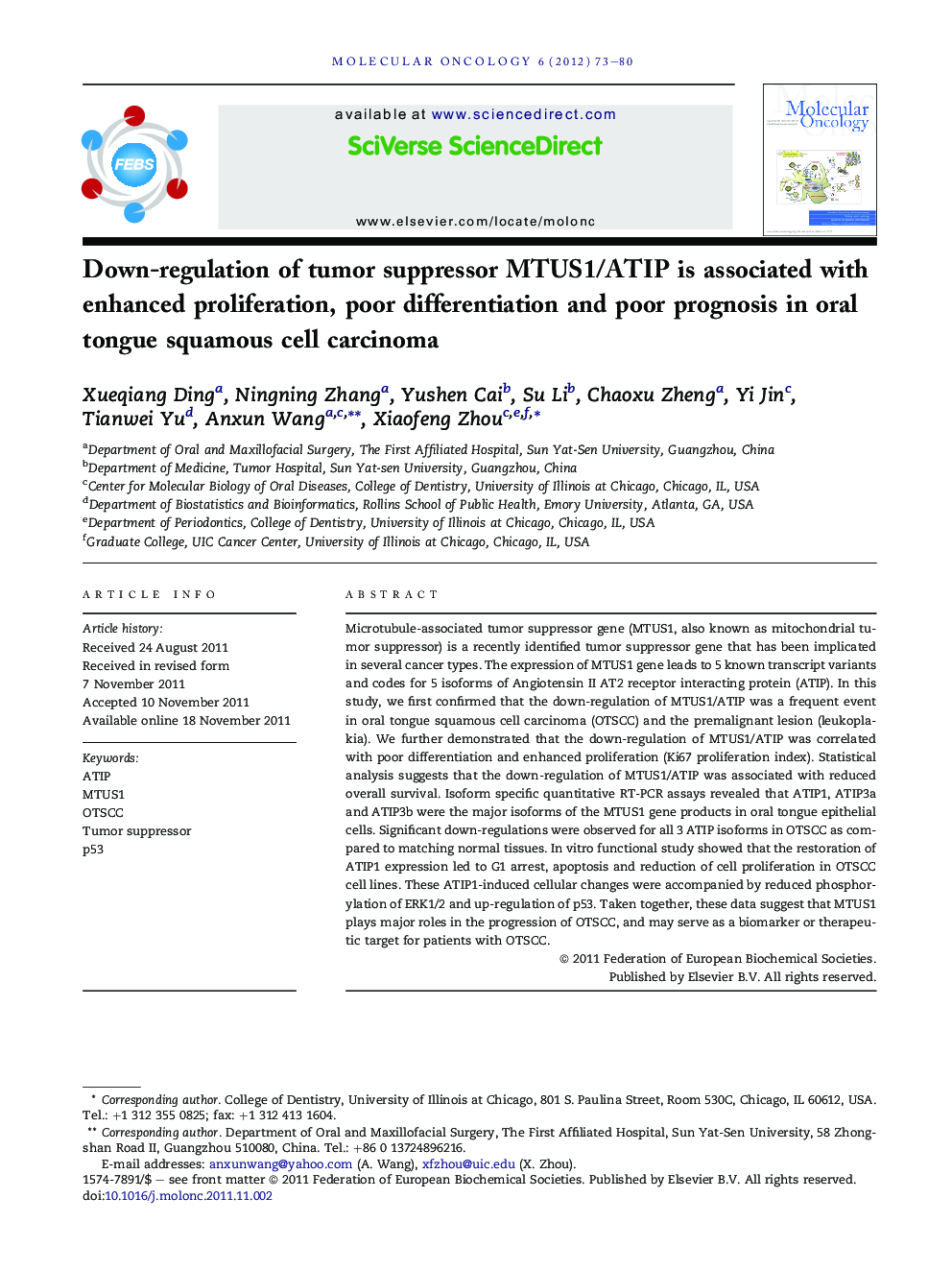| Article ID | Journal | Published Year | Pages | File Type |
|---|---|---|---|---|
| 2145967 | Molecular Oncology | 2012 | 8 Pages |
Microtubule-associated tumor suppressor gene (MTUS1, also known as mitochondrial tumor suppressor) is a recently identified tumor suppressor gene that has been implicated in several cancer types. The expression of MTUS1 gene leads to 5 known transcript variants and codes for 5 isoforms of Angiotensin II AT2 receptor interacting protein (ATIP). In this study, we first confirmed that the down-regulation of MTUS1/ATIP was a frequent event in oral tongue squamous cell carcinoma (OTSCC) and the premalignant lesion (leukoplakia). We further demonstrated that the down-regulation of MTUS1/ATIP was correlated with poor differentiation and enhanced proliferation (Ki67 proliferation index). Statistical analysis suggests that the down-regulation of MTUS1/ATIP was associated with reduced overall survival. Isoform specific quantitative RT-PCR assays revealed that ATIP1, ATIP3a and ATIP3b were the major isoforms of the MTUS1 gene products in oral tongue epithelial cells. Significant down-regulations were observed for all 3 ATIP isoforms in OTSCC as compared to matching normal tissues. In vitro functional study showed that the restoration of ATIP1 expression led to G1 arrest, apoptosis and reduction of cell proliferation in OTSCC cell lines. These ATIP1-induced cellular changes were accompanied by reduced phosphorylation of ERK1/2 and up-regulation of p53. Taken together, these data suggest that MTUS1 plays major roles in the progression of OTSCC, and may serve as a biomarker or therapeutic target for patients with OTSCC.
► Down-regulation of tumor suppressor MTUS1/ATIP is a frequent event in OTSCC. ► MTUS1/ATIP correlates with differentiation, proliferation, and overall survival. ► Restoration of MTUS1/ATIP led to G1 arrest, apoptosis and reduced cell proliferation.
